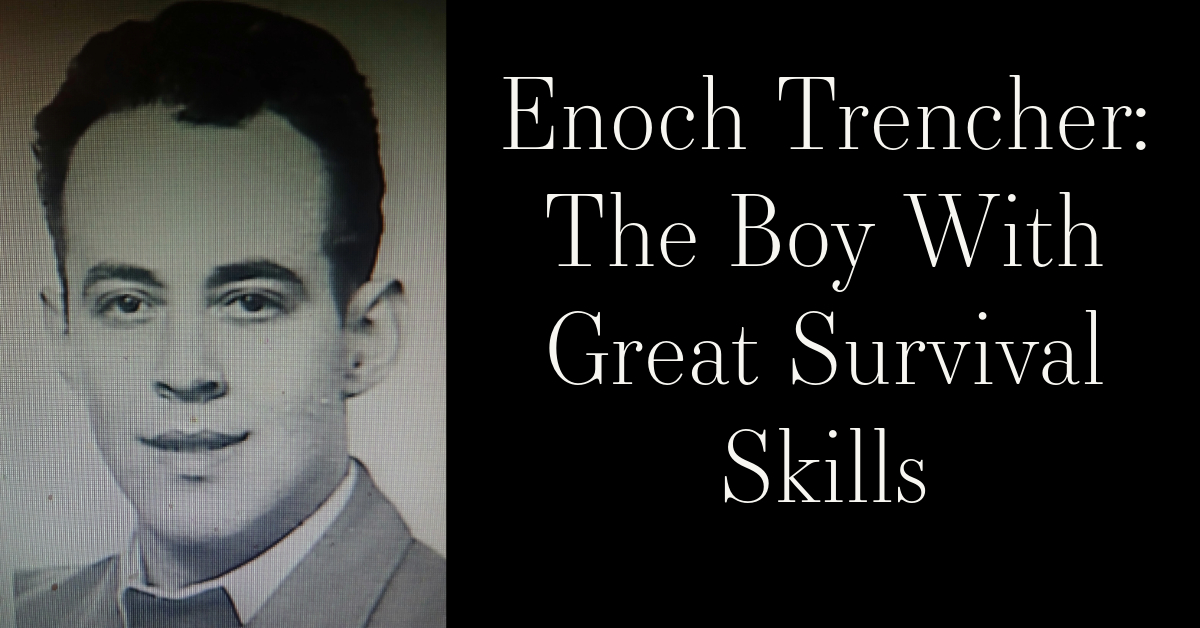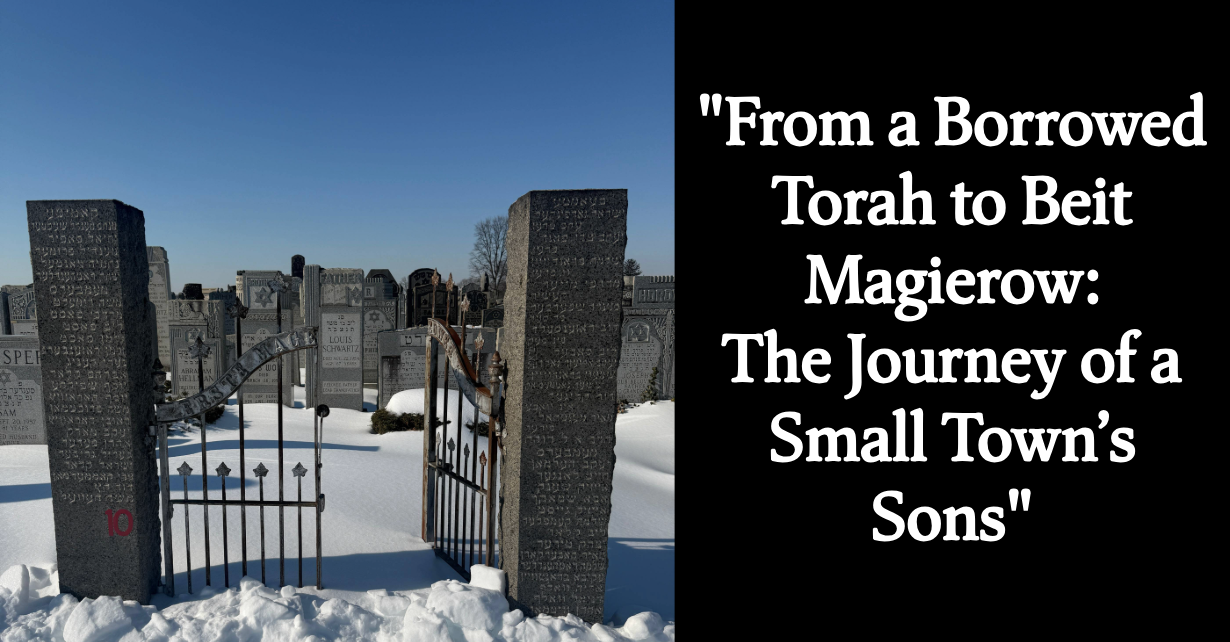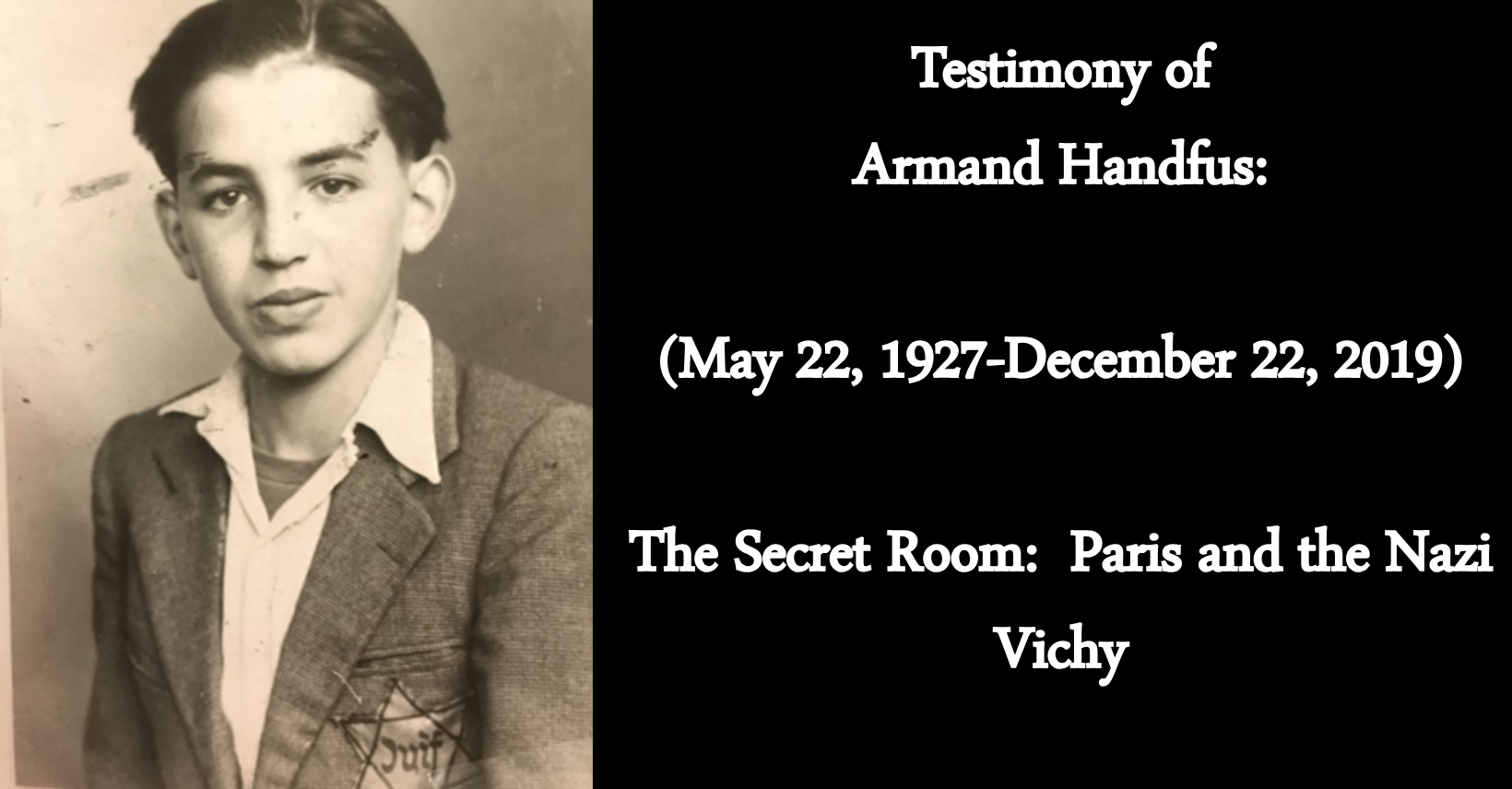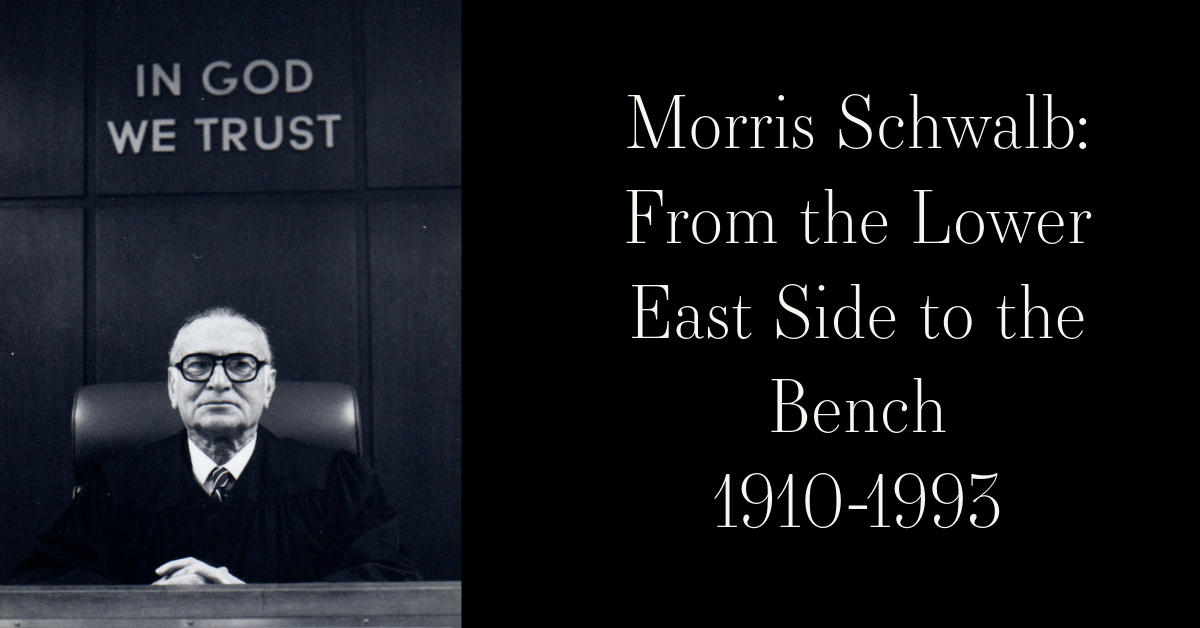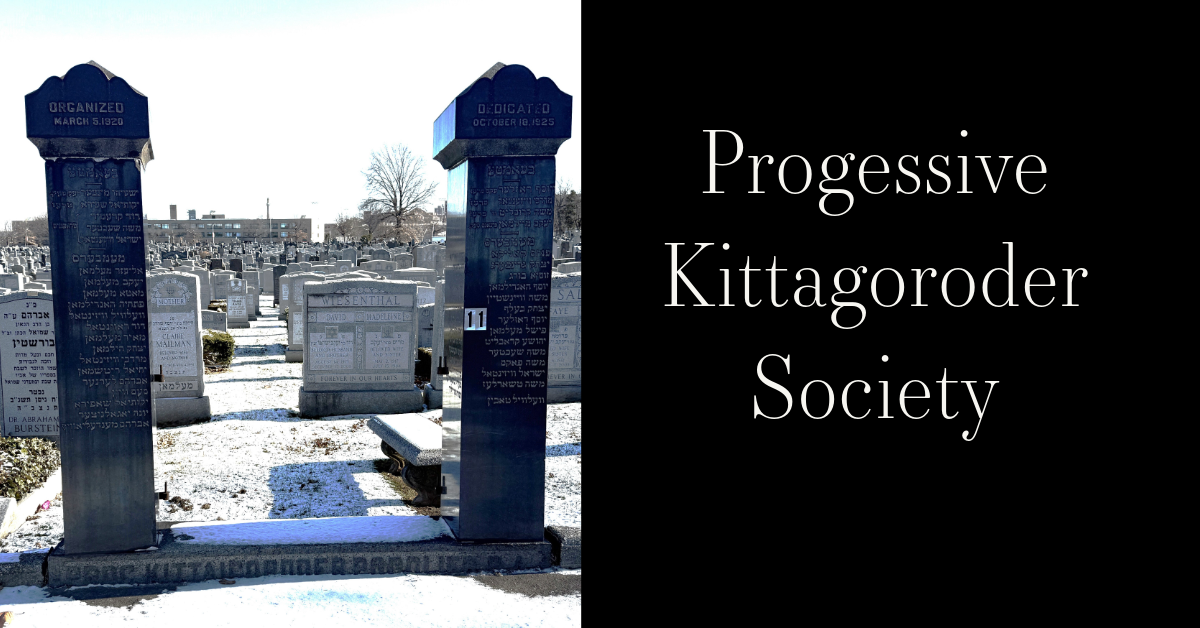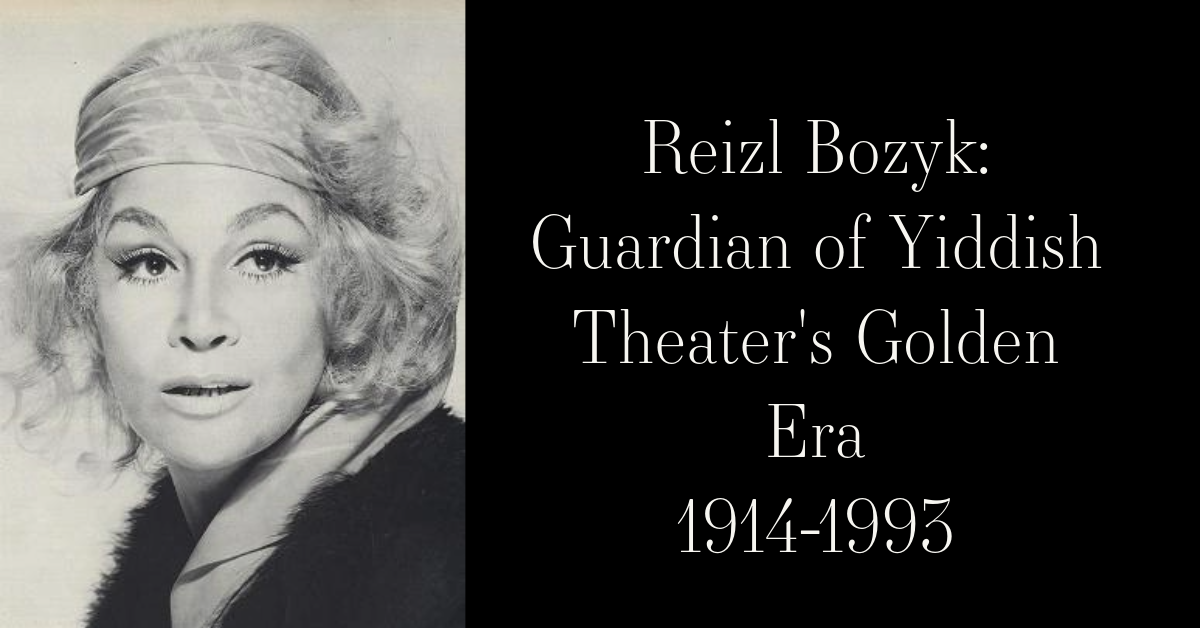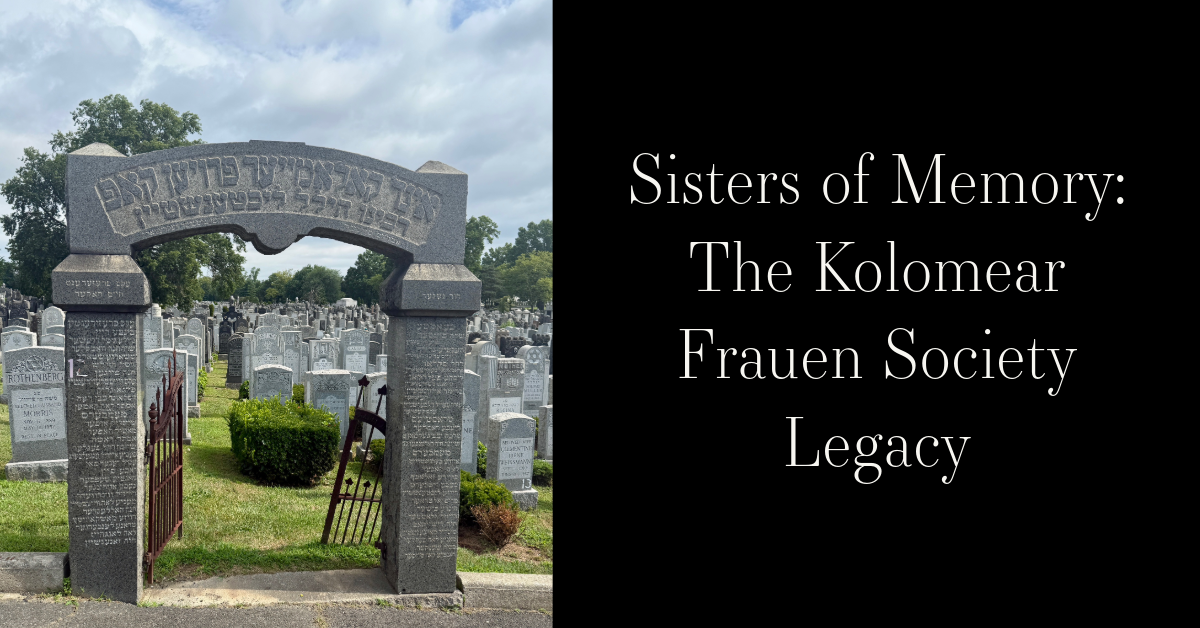Enoch Trencher: A Boy with Good Survival Instincts

Enoch Trencher was born in Krakow, Poland on March 10, 1926 to parents Getzel and Matilda Trencher. Mr. and Mrs. Trencher had 8 children including 4 boys and 4 girls. The Trenchers lived with Enoch’s paternal grandparents. Enoch was born by Cesarean Section. The Trenchers had moved to Krasnov and Ms. Trencher traveled back to Krakow to give birth since there were no facilities for Cesareans in Krasnov.
Enoch attended a school called Gymnasium College where there 6 grades. Enoch was in the 6th grade when the war broke out and he never completed middle school. A Rabbi came to Enoch’s school once a week to teach Jewish studies. A Priest also came once a week to teach the other students. The Jewish children walked in groups of 5-10. At times, Enoch sneaked out of the religion class and walked home by himself. Whenever Enoch walked alone, he was hit by the non-Jewish students and he would run home in tears. Enoch’s older brother usually waited outside for Enoch and walked him home. When the non-Jewish students walked home, they passed the Trencher house. The children would routinely throw stones at the Trencher house and frequently broke their windows. Matilda went to Enoch’s Principal to complain about Enoch being hit and stated unequivocally “You have no control over your school.” The principal’s retort was “Don’t tell us how to run our school; if you don’t like it, take your kid out.” Enoch related that there was one month each year when the Christians attended Mass in the evenings. The Christian townspeople threw stones at the Trencher house during their walk to and from Church. One day, Enoch’s brother-in-law, a husky 6-foot-tall man, hid so he could see who was throwing the stones. Enoch’s brother caught 3 boys and then Matilda, Enoch and his brother-in-law took the boys to the Police station where they were found guilty and fined 20 Zlotys (20 cents). Matilda stood up and told the Judge “If the boys only have to pay 20 cents for their vandalism, then I will also go break windows and scare families to death and have the same fine.” She was sharply reprimanded by the Judge, who said, “Sit down woman. If you don’t, I will hold you in contempt of court and make you remain here.”
At times Enoch walked with his brother-in-law to the village to buy a Heffer, calf, cow or bull to bring back to town. Enoch and his brother-in-law dressed the way the villagers dressed and did not wear anything else that would make them look Jewish. In spite of this, the neighborhood children screamed, “Go back to Palestine,” and “Jews get out of here, you don’t belong,” and threw stones at them. Enoch never understood how the villagers recognized that they were Jewish. He stated, “Antisemitism was rooted in them.” Soon, anti-Jewish edicts were passed and the Jews were excluded from buying properties. Enoch noticed more and more antisemitic leaflets being distributed around town. There were signs posted advising customers not to patronize Jewish stores but instead to shop in non-Jewish businesses (Even though there were very few non-Jewish stores in town). People had difficulty reaching stores in other towns due to the dearth of transportation modes other than bikes or horse and buggy. Enoch stated that Anti-Semitism was on the rise in his Polish city and the Government did nothing to stop it. As time went on, very few Jews were accepted in universities. Enoch recalled that 99 out of 100 students were not accepted. Nevertheless, Jews turned the other cheek and did not protest this sad turn of events.
On September 1, 1939, war broke out. The Trenchers were awoken at 5 AM by the sounds of bombs. They also smelled smoke emanating from the Shoe Factory which had been ignited by the Germans. It would be 7-10 more days until the Germans walked into the Trencher’s town and two weeks after that that the Germans occupied half of Poland and Russia occupied the other half. The Trencher family lived on the German side. Enoch’s brother Bernard went over to the Russian side to reside with his maternal grandparents. His brother Sol was caught by the Germans and imprisoned until he managed to escape through a fence and also went to their grandparents’ home. After a few weeks, the boys returned to their home. After coming to their town, the Germans located the Rabbi as well as ten of the most prominent Jewish leaders and led them into the town square where they were all shot to death within view of most of the Villagers. Then the Germans suddenly left town and the Trenchers and their neighbors were able to continue residing in their homes for another year. The schools remained open but Matilda would not allow her children to attend. Enoch was instead enrolled in Cheder where he would practice Hebrew and learn to read Chumash and Rashi. Enoch rebelled and did not want to be there but since Matilda paid for the lessons, Enoch went. Enoch was rebellious and did not want to be there so he bribed the Cheder Rebbi with a dollar a day and the Rebbe looked away every day that Enoch left class. Instead of sitting and learning in Cheder, Enoch was having great fun outside playing ball in the crisp fresh air. Now, as a grown man, Enoch sadly looks back at his duplicity and sincerely regrets his actions. He compares himself to his contemporaries who have more knowledge of Chumash and Rashi than he does and are more proficient with the Hebrew Language due to their cheder training. Enoch sadly realizes that now it is too late for him. Jews were soon required to wear an armband. However, Enoch did not want to wear the armband since he was only 13.
The Trenchers heard news that Ghettos were being organized in other Jewish neighborhoods. Jews began arriving to their town from other cities and towns. The Trenchers took 4 families into their home. The Jewish Community that the Trenchers belonged to had to put up 200-500 Jewish men and women. Enoch said, “We knew what was happening but still didn’t believe. That’s how naïve people were, including my parents, especially my mother. And what were we going to do? We had our house for about 30 years. Where were we going to go? With just the shirt on our backs how could we go to the Russian side?” Enoch recalls his parents saying, “Let’s stay here. We are still in our home and they are not doing anything to us.” Enoch noted that “slowly, slowly, they started choking us.”

In the Summer of 1941, the Trenchers and other Jews had to move into the Ghetto and find jobs. The Trenchers moved in with neighbors. Enoch and his sisters were not with the rest of the family but were in a different families’ basement. Enoch’s grandmother wandered around the nearby villages and she was shot and killed by the Gestapo. Matilda mistakenly assumed that after a few days of residing in the ghetto, people could return home.
Enoch’s sister was a dressmaker who designed and sewed dresses for the SS officer’s wives and the Commandant’s wife. His sister went to the Commandant and asked him to help her family. The Commandant said “I’ll see what I can do. I will call up and find out.” The Commandant told Enoch’s sister to bring her family to an SS location that evening. However, when the family arrived, there was no trace of any Gestapo officers anywhere. At a later time, Enoch’s sister did speak to the Commandant but, in the end, he would not intervene on the Trencher family’s behalf. Instead, Enoch’s sister as well as several hundred people were driven out of the Ghetto, forced on trucks and trains and sent to Beelitz Concentration Camp. Enoch sadly learned that only 35 people from his Ghetto survived that night.
In 1943, the Germans set up a Jewish council to enforce German edicts and act as Surrogates for the Germans. The council had the authority to kill Jews just as the Gestapo did and they would routinely line the Jews up against a wall and shoot them. There was no resistance because people essentially felt that they had no alternative. One day, the council requested each Jewish family pay thousands of Zloty which would serve as their ransom. Council members went from house to house to appraise each families finances. When the Jews paid “their ransoms,” the monies went straight into the pockets of the Germans in charge. Next, the Jews were asked to relinquish their fur coats to the Germans and were given a date when all the coats had to be in. Enoch recalled a woman who owned a small fur vest which she did not chose to part with. These Jews lived near the Carpathian Mountains where it was extremely cold and Enoch understood that the woman probably needed it. The Germans discovered the ladies’ duplicity and she was shot and killed as a punishment.
Soon, all the Jews were ordered to line up in the marketplace. The people expected this since they heard this happening in other towns. The Trencher family, as well as some other families, did not comply. Enoch’s family was divided up and they hid in different places. The Germans then made a second request for the Jews to assemble. This time, Enoch and his sisters went. Once the remaining Jews arrived, an announcement was made requesting that any men between the ages of 18-35 step out of the line. Enoch was much younger than 18, but he nevertheless joined other men stepping out of the cue. As he looks back at that fateful day, Enoch feels that Hashem was with him when he made that decision. There were 32 males standing with him and all of them were led into the corridor of a building which was then locked. The next thing the men knew, they were hearing a blast of gun shots outside.
The people who remained in line outside and the group of 32 men were soon taken away in Cattle Cars, including Enoch’s sisters. The males were taken to a big street that was closed off. They were issued ID cards and were told they could go where they wanted to for the next 24 hours. When Enoch returned after the 24 hours, Enoch and 50 young men and taken to a camp called Grabovnica. Two weeks later, Enoch and his brother-in-law were reunited with his 5 year old nephew. When Enoch and his brother-in-law went out to work, his nephew remained in their bunk house for two weeks. For 6 months, they stayed in a whole house, previously Jewish owned. All the other Jews in the town were already taken away. The men cooked their own food and were still able to keep some of their money. They were not watched during the night but only during the day when they were working. At night they snuck out and purchased food from their Polish neighbors. Once a month, the men in their camp went to different towns for supplies. When they were in Krosno, Enoch saw his nephew and brought him back to the camp where Enoch was staying.
Toward the end of 1942, the men were taken to a new Ghetto called Jhasoob, which was called the bigger ghetto. There was also a smaller ghetto called Rzechub. One of the ghettos was for those working and one for those non-working. People in the working ghetto worked in the towns or did whatever they wanted. In the non-working Ghetto, people got a ration but they didn’t have jobs. In Jhasoob, typhoid broke out. Enoch became ill but he survived. The Germans and the Jewish Police kept watch over the people.
The Jewish Police were worse than the Germans. Some were so bad that they themselves murdered other Jews. When the Germans liquidated the Rzeszow Ghetto, the Jewish Police were killed also since the Germans did not want anyone to reveal what was occurring. The men were in this camp for over a year until another truck arrived.
A Typhoid epidemic broke out due to the filth and lice. Before Enoch left home, Matilda sewed several hundred dollars into his pants saying that in case they get separated, he should have some money on him. The money was very useful since Enoch had money to buy Medicines, drinks and other things to keep him alive. Enoch was happy that he survived but he sadly stated that he saw people die left and right.
When big trucks pulled up Enoch realized what they were there for. At the time, Enoch was on a workforce working on one of the roofs. Twice Enoch tried to hide when they grabbed Jews to load into the trucks. However, Enoch was caught and taken from the Rzeszow Ghetto to a Concentration Camp. There Enoch was put in a holding cell at which time he was separated from his nephew and brother-in-law.
Approximately three months later, the camp and Ghetto were liquidated. The Germans led all the people into the forest, had them dig a very large pit and then they proceeded to shoot everyone into it. To men survived the massacre but they were also shot. In 1943, people were sent from the forest camp to Pustkow in Poland. When they arrived, they got two weeks leisure time with good food. The men did not have to do anything at that point. There were about 40,000 SS men in a camp in town who needed their shoes fixed. Enoch’s group began working in shops to fix the shoes of the SS men.
Enoch was transferred to a new division in Pustkow. Within 4 weeks he learned how to manufacture brushes and within six months, Enoch was officially a professional brush maker weaving both human hair (from Jews) and pig hair into the brushes. For over a year, Enoch resided with 20-30 people in an apartment with 60 people in the entire camp. Enoch “liked” this camp the most. Here, he was able to remain in civilian clothes and eat well enough to return to his original weight of 125-130 lbs. when he left this camp.
There were 600 people sent to Birkenau from Pustkow. They remained on a train for a week with hardly any nourishment. As soon as the train doors opened, the prisoners were met with a strong putrid odor. They soon learned that that the smell was emanating from smokestacks in the crematoria where Jewish bodies were being incinerated. In Birkenau, the men stood in line for an Appel. Mengele was there looking the men over and deciding that this group of prisoners were healthy and they were directed to the left. In Birkenau, food was the only thing that Enoch thought about night and day and he never went to sleep on a full stomach. After a few months in Birkenau, Enoch no longer thought about his family and recalled that he could no longer produce tears.
Enoch learned that the SS in Pustkow gave this group of men high recommendations when they arrived in Birkenau due to their skill level as mechanics and craftsmen. The men were taken to a holding camp where they would remain until being sent to a factory. They were provided with soap and water to bathe and afterward they had their numbers tattooed on their arms. Enoch stated that the entire procedure in Birkenau made Enoch feel like an animal. For three weeks Enoch was one of 8-10 men sleeping side by side on a wooden bunk bed with no mattress.
Enoch was transferred to Laveraita, a Concentration Camp in Poland where he worked in a factory for the German defense. A Forman approached Enoch and asked what he could do. Enoch leveled with the Forman saying “I don’t know anything.” The Foreman seemed impressed with Enoch’s honesty and responded, “Don’t worry; I will teach you because you told me the truth.” Enoch was just 16 years old yet, within a few weeks, he was able to operate all of the machines on the floor. Enoch felt that his ability to quickly learn how to use these machines was attributed to his age since young people can easily learn new skills. Enoch shared that the small amount of food that the prisoners were given amounted to 800 calories a day which was just enough to keep the men alive. Enoch remained in this Concentration Camp for over a year after which time he was placed on the last train out of the town.
Enoch was sent to Hootakamarufska Concentration camp and he worked in the fields. In these fields, Enoch had access to empty homes left by Jews and the men were able to collect useful things and put them into warehouses. They took clothes which they brought back to the concentration camps and traded them for bread and butter. Some of the prisoners were caught and punished but not shot. The men worked in the forest doing very hard work such as pulling trees out by the roots. The food was very sparse and thus none of the men doing such hard work lasted more than 2 months. Enoch felt that Hootakamarufska was one of the worst camps he had been in so far. People began getting sick and they were taken by the Police along with the dead into the Ghetto where they were exchanged for healthy people who could work.
Enoch was sent to a Death Camp where the men were told that if they brought their shoes into a designated room, the workers there would resole the shoes. Enoch bought his shoes in for repair but never got them back. Enoch was forced to walk around the forest barefoot and then continue to walk several more Kilometers. As a result, Enoch’s feet became swollen and he developed foot sores that became infected. Enoch lamented that was no water to wash his feet, no antibiotics, no infirmary and no one to ask for help. Enoch felt that the Gestapo purposely took the men’s shoes away as yet another method to eliminate people.
Enoch was then sent to the Puskuv Concentration Camp and the men were put to work building the camp up for a few weeks. After this job, the men were given a 4-week break during which time a few doctors arrived. Enoch was fortunate to have his feet cleaned and to receive medication necessary for his infections to heal.
In April 1944, Enoch arrived in Auschwitz. He mentioned that his tattoo number included the letter A to indicate that he was in the first group of inmates. Prior to his group coming, the tattoos were all numerical. Enoch kept track of the tattoo numbers and was shocked when the numbers skyrocketed to a half a million!
Enoch remained in Auschwitz for a few weeks and at one point noticed that a few Russian boys, who were not Jewish, were sent to the Camp. Enoch learned that at that time, Russians were circumcised just like the Jews. When these boys were captured, they kept screaming, “We are not Jews.” The Gestapo men shouted back, “You were circumcised; so you’re a Jew.” These Russians were forced to remain in the Camp.
Part of the Camp was Birkenau which was a Way Station where people waited to see where they would be sent. Enoch heard someone in charge shout out a request for mechanics to come forward. Enoch immediately stood up. He stated that he always volunteered when any type of workers was requested. For the next seven months Enoch worked as a mechanic. Enoch was transferred to the Laveraita Camp where he had to sleep in a bed with 8 men width-wise. When one man turned, all 8 men had to turn as well.
An inmate in Camp with Enoch was assigned to work for the Commandant by walking and feeding the Commandant’s dog. Enoch devised a plan with this inmate that the inmate would walk the dog only certain times of the day during which times Enoch would be present. The plan was that prior to feeding the dog his meal of beef stew, both Enoch and his friend would pilfer a few heaping spoonsful of stew and drop them into two old canteens they found. The men usurped the dog’s food for many weeks and the food gave them energy and kept them alive.
Occasionally, a truck would bring raw potatoes into the camp. Enoch noted that raw potatoes are very hard to eat even when someone is very hungry. A few inmates scooped up a bunch of potatoes and took them back. They had previously learned about a group of men who worked putting tar on the roofs of buildings after making a fire to heat the tar. Enoch and his friends made an arrangement with these boys. Enoch and his friends offered to split their potatoes with these men but only if the men agreed to cook these potatoes for them in the fire. While these extra potatoes still did not fill Enoch’s stomach, but at least they had more food than they had previously. This arrangement worked out for all the men and lasted for several weeks.
Enoch recalled that there were 4 boys in camp who were friends and helped each other out. Their bunk was in a building had windows which overlooked the sidewalk. One of the men was able to make a hole in the wall and a second man climbed through the hole and escaped to the street. Prior to his escape the man had his hair cut off on both sides of his scalp while leaving a row of hair down the middle. He did this so that if he was caught, they would not know which Camp he was from. This man was ultimately captured and hanged in front of the entire camp in order to teach the other inmates a lesson. Enoch and others were put on a train, which was the last train to leave the Camp before the Russians arrived. Enoch relates that if he would have remained in the Camp for 24 hours longer, he would have been liberated. Instead, Enoch was put on a train and his internment resumed.
In 1945, Enoch and a group of men were sent to the Mauthausen Camp in Austria for a few weeks. Enoch’s new job was in a factory working on Cannons in Defense. Enoch described seeing starving inmates consume salt. He stated from his understanding that when people eat salt without enough (or any) other things, it turns the knees and elbows to water and the person ends up needing medical care. However, Enoch never witnessed this occurrence. One day, the men were served a lunch which differed from the norm. They were given a chunk of bread, a large chunk of excessively salty butter and 1/8 of a cup of coffee. There was also water available. The men got so thirsty after consuming the butter that they also drank excessive water - which had been poisoned. Many of the men subsequently developed diarrhea and after 1-2 additional days, they died. Enoch felt like Hashem was looking out for him since he found the butter much too salty to eat and did not drink the water since he did not like the taste. As a result, Enoch avoided getting sick or dying as many of his fellow inmates did. In 2-3 weeks, Enoch was transferred to another camp.
Enoch found himself crammed into an airless train where people were literally choking to death. Enoch again feels Hashem was with him when he found himself standing next to a wall that had a small hole which let the fresh air in. Soon, the people were moved into a passenger car which had plenty of room to sit but had no heat. It was January 1945 and due to the bitter cold in the car, people soon had frozen fingers or toes by the time they arrived at the next camp. Enoch observed people with frozen fingers and toes taking a hot shower as soon as they were able. Enoch, however, knew better. His toes had frozen but he put only a few drops of cold water onto his toes until his frozen toes got back to normal. Enoch had farm experience when he was growing up. Therefore, he knew that when a person’s feet or toes are frozen, they should never be plunged into hot water since this initiates the decaying process. When these inmates told the SS men that they were sick, they were immediately sent out of the camp and were never heard from again. Enoch learned that these people were sent to Flaussenberg, a death camp.
In April 1945, Enoch and the other surviving prisoners began their Death March. Prior to the march beginning, everyone’s shoes were appropriated and replaced with wooden clogs. Enoch tried on the clogs and wore them for 100 feet before taking them off and throwing them away since they were so uncomfortable. In Enoch’s old neighborhood, people wore their clogs to attend to the cattle in their stables; but never for daily wear. Enoch looked around and found many shmattas (rags) lying around. He used the rags to tie all around his feet. He also found a long heavy stick with which he used as a support for walking during the Death March. Enoch recalled the men walking with their clogs for several hours until their feet started bleeding. As soon as the men sat down to take care of their injured feet, they were promptly shot. Enoch was one of 5,000 people on route to another large camp 5 km away but only 10% of those men arrived.
Every night on the Death March, the men slept in all different Farmer’s barns. The men had made friends with the different farmers as well as the farmer’s children. The men were fortunate to find a variety of things in each of the barns. Once they found sugar which they put into their pockets for instant energy. Several other times, they discovered potatoes. The men received one potato per day for their March. The extra potatoes they discovered in the barn were divided amongst the men. This additional food helped some of the men survive the Death Mach. The men became friendly with some of the farmer’s children. In one barn, Enoch happened to tell one of the children that he was cold and the child brought him a sweater. Another child brought Enoch an empty insulated cement bag which Enoch promptly placed under his clothes for warmth.
The next Camp they were taken to was tremendous and housed hundreds of thousands of people. The bunks were 9 or 10 people high. The inmates remained there for only a few days. One day, the men heard someone shout “Ala Yudin Arouse,” meaning “All the Jews get out.” The men realized that the end of the war was imminent and the Russians were approaching. They were forced to line up and march 5 KM to a Ghetto in Theresienstadt. This Ghetto would the last one that Enoch would have to endure.
The men learned that Hitler built this Concentration Camp for a select population: handicapped German Jews. The men met 1,000’s of German Jews here from all over Germany. Enoch was both sad and envious of these people. It did not seem fair to Enoch that his beautiful healthy sisters and brothers were murdered and their bodies burned in the Crematoria along with millions of other Young Jews while in this Camp the cripples, deaf, blind, wheelchair bound or otherwise impaired individuals lived unperturbed and in relative safety. To Enoch, the whole situation was too sad.
On May 8, 1945, the Russians had arrived at Theresienstadt, the gates were thrown open, and the Camp liberated. Enoch weighed 65 lbs when he was liberated. As the men made their way into the town, Enoch and several friends noticed a German couple riding in a horse and buggy. When the pair noticed the group of bedraggled ex-prisoners, they quickly jumped out of their buggy and ran into the forest. The men climbed into the buggy and found a large suitcase which they took They were shocked to see that it was full of Deutschemark– German currency. Enoch grabbed a hand full and stuffed it into a briefcase he just found. Someone announced that this money was useless. The money was then thrown down and one of the prisoners threw a lit match into the stash of money and it all went up in flames. A few other men were looking through a suitcase that contained food items. Enoch tried to get his hands on any of the food but was too short to reach into the case.
Enoch and his friends found storehouses filled with food. They took tubes of cheese, loaves of bread and honey. Enoch wished that he had enough bread to satisfy his hunger and was so starved that he finished the loaf he had. Enoch and the rest of the Camp soon developed Diarrhea. Then Typhoid soon broke out. Enoch had gotten Typhoid previously in a Ghetto in Poland. He knew that when an individual gets Typhoid once, they become immune. Enoch, once again, considered himself lucky.

Enoch and his friends registered for a boat that was making Aliyah to Palestine. Enoch wanted to search for his family members. He went to a big camp in Lenzburg in Bavaria and registered his families’ names in Munich. He learned that his two brothers were sent by the Russians to Siberia. There they survived and were eventually sent back to Poland. Enoch went to Bergen Belsen where he registered to go to Poland and look for his family.
Enoch spent a few weeks in Krasnov. He went to visit his childhood home, but was grief-stricken to find that it had been destroyed. He was still feeling intense anguish as he walked over went to visit his neighbors. The neighbor asked Enoch, “why don’t you change your religion and become one of us?” Enoch was thunderstruck when he heard this and inquired “For this, I went through a whole war and suffered?” To his shock, Enoch saw three pictures from his home hanging on the neighbor’s wall. Enoch suspected that she took many other pictures and needlepoints but these were the only ones he saw. The neighbor told Enoch that Matilda gave her the pictures so that she would pray for Matilda. The neighbor did not want to return the Trencher family pictures. Enoch considered calling the police but figured that they would not have helped him anyway. Enoch kept asking the neighbor to return his pictures. Finally, she gave Enoch the three that he saw. Enoch has these very pictures in his living room and stated that they are now his “priceless possessions”.

Back in Kassovitz, someone told Enoch that they had contact information for his brothers. Enoch wrote to his brothers and they got Enoch’s letters but he did not receive their letters. Enoch learned that his brothers had wanted to live in Israel but war had just broken out so they did not go. Instead, they arranged to live with Enoch in Regensburg. They lived there for a few years until Enoch’s aunt in Pittsburgh sent Enoch a US Visa. On June 2, 1949, Enoch arrived in America and settled in Portland, Maine. One year later, Enoch’s brothers joined him in America and they all lived in Maine a few more years. Enoch’s oldest brother, Bernard, got married, but Enoch’s middle brother Sol remained single.

Enoch needed a livelihood in his new country. He spoke to a man he knew from the meat business named Sam Breitowitz and leveled with him saying “I’ve got to have a trade. Teach me the business.” Enoch put down $1,000, which Breitowitz did not take although Enoch joined him and worked with him for 3 years. Then Enoch moved to New York and became a Jack of All Trades. He worked as a busboy, a package handler, a courier, and a paper cutter. Enoch eventually joined a Union. An opportunity knocked and Enoch fortunately found a partner. Enoch and Mr. Breitowitz went into the grocery and meat business. In between, Enoch met and married his wife. Enoch found it a coincidence that although his wife is American, her parents hailed from Enoch’s hometown.

Enoch went into another business working in both Newark and East Orange, New Jersey. Business was good but Enoch was always worried about going to and from work since the locations were both highly unsafe. Enoch stated that the only way he survived going to these crime ridden locations was by walking the streets while holding the leash of a big Doberman Pinscher, Enoch’s guard dog. Enoch eventually sold this business and went into a summer business at an Ice Cream Shop. Enoch began receiving Restitution Checks as well as a small Pension from the German Government when he was accessed to have acquired a disability in the War. Enoch died on August 28, 2013 at the age of 87. He is buried In Block 26 at Mount Hebron Cemetery in Flushing, Queens.

~Blog by Renee Meyers


